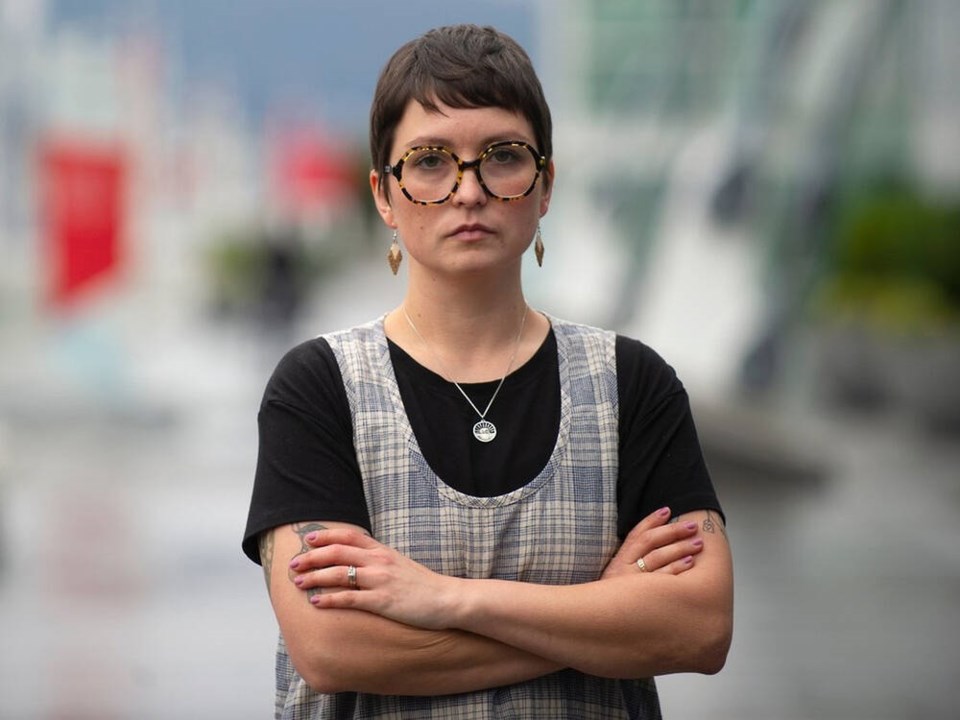As Prime Minister Justin Trudeau and Premier David Eby touted the federal and provincial money that cut average daycare fees by half, a mother of a child with diverse needs said the discussion around universal affordable child care doesn’t include families like hers.
After Tabatha Berggren’s son was born with developmental delays in 2014, she became frustrated over how few daycares in the Lower Mainland could provide the support he needed.
“We quickly realized I would have to be a stay-at-home parent in order to provide the full care that he required because it felt like there were [daycare] spaces available, but not for our child,” said the 33-year-old Métis mother.
After a fruitless search, the family moved to the Sunshine Coast, where they found a preschool with a supported child-development program offered by the non-profit agency, Inclusion B.C. The program offers a one-on-one support worker, occupational therapy and physiotherapy under one roof, which Berggren called “a huge gift.”
Eby and Trudeau, meeting in person for the first time since Eby became premier, spent Friday morning at the Richmond Jewish Day School talking to parents who were thrilled at news that as of Dec. 1, 69,000 families will have their daycare fees reduced by hundreds of dollars a month through the child care fee reduction program. One mother said with two kids in daycare, her fees will drop by $1,000 a month.
The average child care fees will now be around $21 a day, but some B.C. parents pay $10 a day thanks to provincial government subsidies through a pilot program.
“We’re very much on track to delivering our commitment to $10-a-day child care by 2026,” Trudeau said. The province said an additional 2,450 child care spaces have been subsidized to $10-a-day, for a total of 10,500 spaces at 61 child care centres.
Berggren applauded the savings, but wants to see an effort by the B.C. NDP government to secure a number of daycare spots for children with diverse needs.
“The push for universal child care is tremendous, and it’s desperately needed,” Berggren said, but “it just hurts a little bit” because despite all the funding announcements “none of it is going to meet my family’s needs.”
Berggren’s experience is backed up by a new study by two University of Victoria researchers that found the province’s push for a universal affordable child-care system is geared toward a “typical” child. It highlighted examples of children who were excluded because of a lack of resources and training.
Janet Newbury and Alison Gerlach, professors with the University of Victoria’s school of child and youth care, spoke to 15 parents of children with diverse needs who said they feel marginalized and left out of the discussion on how to create an inclusive child care model.
In one case, Newbury said, the parents had enrolled their child in a daycare, but once the provider found out their child had a diagnosis that would require additional supports, the parents were told the daycare doesn’t have the resources to care for that child.
Newbury said an unintended consequence of making child care more affordable in B.C. is that it “increased demand in a system that has no inclusion framework, the effect of which is that children with support needs have less access.”
The situation is worse, Newbury said, in northern, rural, and remote communities that have more privately run daycares with little capacity to offer additional supports.
Parents told Newbury the waiting lists for supported child development programs like the one helping Berggren’s child are so long that some children are in primary school before they can access them.
The study calls on the government to implement a policy on inclusive child care and change the licensing requirements to ensure staff-to-child ratios reflects the diversity of children’s needs.
Katrina Chen, B.C.’s minister of state for child care, acknowledged that demand is high for supported child-development programs, which leaves some parents on waiting lists. A major challenge, she said, is finding enough specially trained early childhood teachers to support children with diverse needs.
“Having equitable access, it is definitely a challenge because child care providers may have different capacities,” said Chen, whose eight-year-old son was recently diagnosed with a neurodiverse condition. “We recognize we need to build a better system so that child care is no longer a barrier and to ensure providers are not turning down families or children who require support since that’s not equitable, that is discrimination.”
In a statement, the Education and Child Care Ministry said the province and federal government earmarked $31.8 million this year to expand supported-child-development and Aboriginal-supported-child-development programs, which create individual plans based on children’s needs, work with child-care providers to make the daycare more inclusive and hire more specialized support workers.
The government is working to recruit and train of the specially trained early childhood teachers and the ministry noted an additional 666 special needs teachers were certified in 2021-22, an increase of 64 per cent from the year before.


